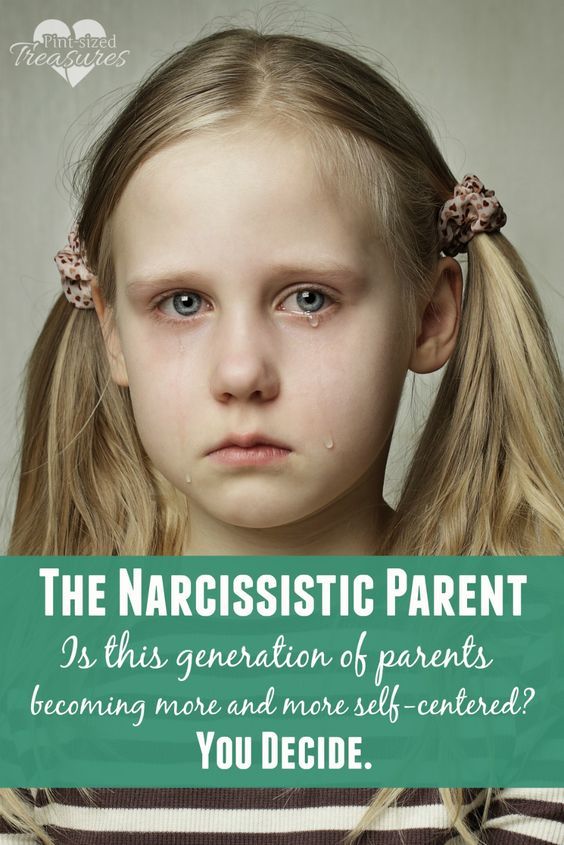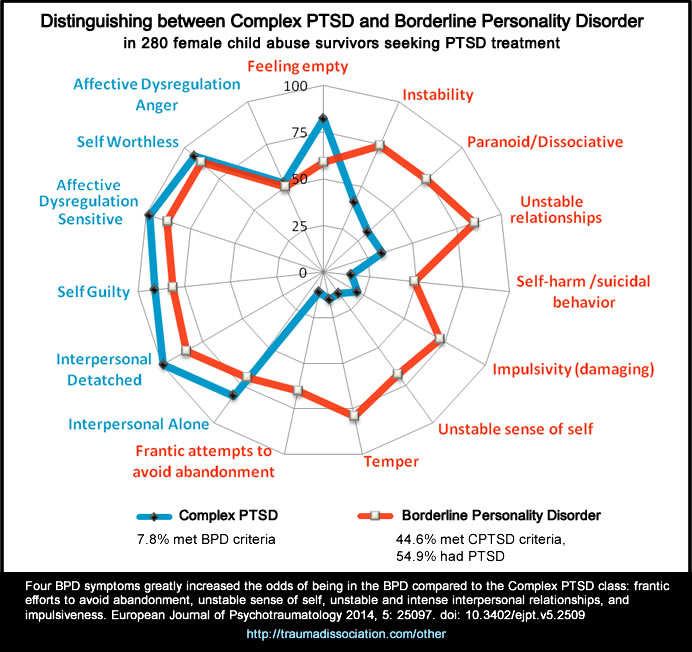Narcissists and their children
The Narcissist And Their Children
The relationship between a narcissist and their children is a unique one, full of contradictions. You see, not only will a narcissist subject their children to all the usual abusive behaviours that they subject everyone else to, but at the same time, they view their children as extensions of themselves; as not being separate from them.
"This means that a child should want what they want, should be who they want (preferably a ‘mini - me’) and should do what they want."
They should enjoy what they enjoy, eat what what they like to eat, be good at what the narcissist is good at, and generally subjugate who they are as an independent, unique person to the desires of their narcissistic parent.
If the child wants a scooter for their birthday, the narcissistic parent might suggest a mountain bike instead, because they they want one. If the child wants to play the piano, the narcissistic parent might insist they learn the violin, like they did. If the child wants to be a nurse when they grow up, they might suggest the job they always wanted to do, or do do, instead, whatever that may be, no matter how vastly different it is from what the child wants. It’s subtly different from just being controlling (which of course narcissists also are). Their demands on their children are often wholly unreasonable, coming from a place of pure self-interest with no ability to put themselves in their child’s shoes and view things from their perspective.
This is a complicated relationship. Because they don’t see the child as being separate from them, they violate their boundaries, even more than with other people. They might read diaries, go through their belongings, read their emails, or enter their room without knocking. They might vet their friends or attempt to become too ‘pally’ with them, perhaps even flirting with teenage children’s boyfriends or girlfriends. They might track them closely using their phone, or demand to know where they are at all times. They might become over-involved with their hobbies, intrusively so. A narcissistic parent will expect instant replies to messages, and if these are not forthcoming, especially when they can see that a message has been read, or that their child is online, this will induce narcissistic rage, as it challenges their version of reality of being one with their child.
They might become over-involved with their hobbies, intrusively so. A narcissistic parent will expect instant replies to messages, and if these are not forthcoming, especially when they can see that a message has been read, or that their child is online, this will induce narcissistic rage, as it challenges their version of reality of being one with their child.
This over-identification with the child also means that narcissists can find it very difficult to tolerate ‘imperfection’ (which can really be anything that is different to how they want them to be) in their child. It’s extremely common for narcissists (if they are the sort who have a need to appear invincible) to deny illnesses or conditions in their child, either not allowing them to be diagnosed in the first place, or not allowing them to be treated, as treating them would be an admission of imperfection. Asthma, dyslexia, even broken bones can be swept under the carpet by the narcissistic parent, in their own need to be all-perfect, and special.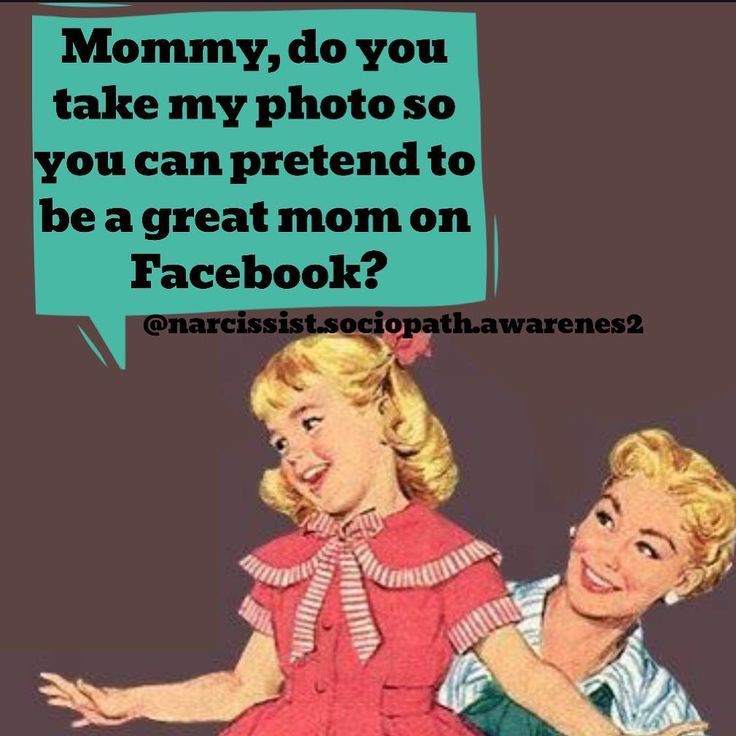 This is more than the child’s ‘weakness’ reflecting badly on them - it is an admission of weakness in themselves, which they simply can’t tolerate. They are their child, and their child is them. This is personal - quite literally.
This is more than the child’s ‘weakness’ reflecting badly on them - it is an admission of weakness in themselves, which they simply can’t tolerate. They are their child, and their child is them. This is personal - quite literally.
(Note that some narcissists play the victim card and are riddled with illness, pain and disability, which they use an tool to gain sympathy and attention, so that they don’t have to openly hog the limelight. These narcissists may also use any illnesses in their children as a means to secure narcissistic supply and attention from others, mollycoddling them, and inventing or hyping up illnesses in them to this end). Some even go as far as full blown Munchausen’s syndrome by proxy, instigating hospital investigations and treatments for their children’s false illnesses.
"The strange thing is that at the same time as seeing their children as extensions of themselves, narcissists will treat their children in the same abusive ways as they treat others. "
"
Their children are not immune from being at the receiving end of the narcissist's cycle of ‘idealise and devalue’, where they are alternately lovebombed, (showered with praise and attention), and then subtly devalued, criticised, withdrawn from and put down. This leaves them confused and hurt, and they start jumping through hoops to please the parent enough to re-enter the idealisation phase again. This is a cycle that repeats ad infinitum, over and over again, even when the child becomes an adult themselves.
Narcissists’ children will be triangulated and played off against others (often their own siblings or cousins), and will find themselves vying for the narcissist’s attention. They will be gas-lighted - lied to by the narcissist to the point where they their own reality is dismissed as false, so that they stop trusting their own perceptions of reality. They will be demeaned and shamed. If they are particularly good at something, behind closed doors they may find themselves on the receiving end of the narcissistic parent’s jealously. Confusingly, the narcissist may then, in front of an audience, hold up their child’s talent as a source of pride, as just another way to gain positive attention for themselves.
Confusingly, the narcissist may then, in front of an audience, hold up their child’s talent as a source of pride, as just another way to gain positive attention for themselves.
Now add to that the variant of triangulation that narcissistic parents often engage in - the dynamic of the ‘scapegoat’, the ‘golden child’ and the ‘invisible child’, and things become even more destabilising for the child. The children are assigned their roles, either as the one who can do no wrong, the one who can do no right, or the completely unseen and unheard one. Each resents the other, either secretly or openly, and each craves to be in the position of the golden child. And suddenly, often without warning, the roles change. Role shifts can occur every few days or every few years, keeping the children on their toes, on high alert. And even worse, the other parent often turns a blind eye, and enables the narcissistic parent in their appalling behaviour. They often even join in with the abuse, themselves as they try to curry favour with their narcissistic partner, themselves a hapless victim of covert emotional abuse.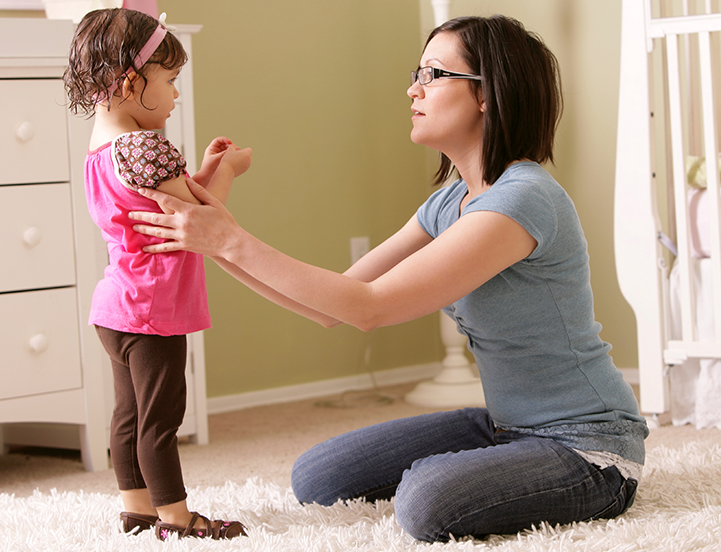
In households where the narcissistic parent is single, children may find themselves being parentified, expected to discuss and look after the parent’s emotions or finances, to be their confidante, and have have household responsibilities inappropriate to their age. Guilt and responsibility sits heavy on the shoulders of these youngsters.
Children are often expected to vie for the role of ‘primary adorer’, and live in awe of their narcissistic parent. And they, almost inevitably will find themselves subjugating their own needs in preference for the needs of the parent, in order to keep the peace and avoid their parent’s narcissistic rage. Walking on eggshells becomes the norm for these children.
It is no wonder then, that children of narcissists very often become narcissistic themselves, having ‘learned’ narcissism from their very own beginnings. In developing ‘work arounds’ to appease their narcissistic parent, they are actually wiring these patterns into their brains as normal. This is also true of those children of narcissists who do not go on to become narcissists themselves. These children tend to become adults who exist to please others, and who see toxic behaviour from others as normal - a baseline. They go on to attract narcissists into their lives as partners and friends, and may go on to endure anything up to a lifetime of narcissistic abuse.
This is also true of those children of narcissists who do not go on to become narcissists themselves. These children tend to become adults who exist to please others, and who see toxic behaviour from others as normal - a baseline. They go on to attract narcissists into their lives as partners and friends, and may go on to endure anything up to a lifetime of narcissistic abuse.
The tragic reality is that narcissists don’t (and can’t) love their children in the way that ordinary people do. They will tell you that they do (and most likely they will believe that they do), but their love can only be of the transactional, conditional type, even with their children. Narcissism is a condition of low empathy, entitlement and interpersonal exploitation. These, very sadly indeed, do not form the solid foundation required for unconditional, deeply felt love. And although the narcissist’s professions of love for their children might look convincing to the outside world (but more often, they look a little over the top), whatever feelings they do have are shallowly held, and changeable.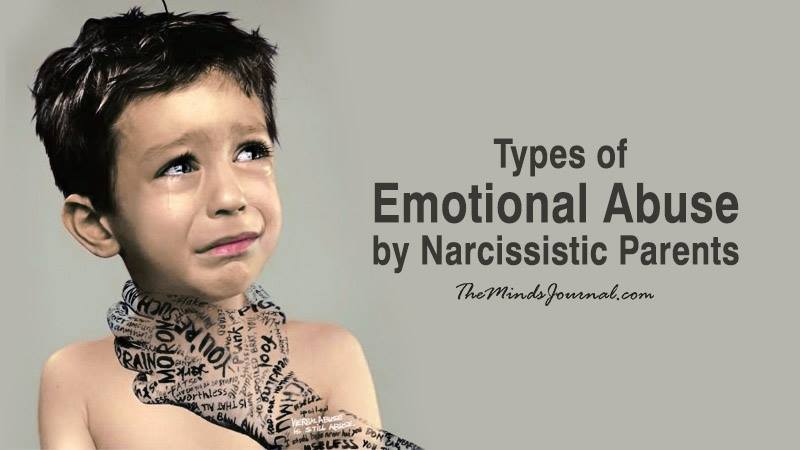
In short, and to put it bluntly, narcissists do not have what it takes to be good parents. They cannot put another’s needs first. They cannot care enough about another to have their best interests at heart (unless they gain narcissistic supply in some form from giving the appearance of caring). They can pretend, and they can pretend well, because pretending lies at the very core of their personality disorder. Every day they pretend to be the false persona, the outward image, that they project to the outside world. They do this because they have to - they cannot bear the feelings of shame that would result from having to face their own feelings of unworthiness and inadequacy that are actually simmering under the surface. They can even fool their own children, even into adulthood, in many cases, that they are a the best parent a child could have, and that they should feel lucky.
"Don’t forget that grandiose, overt narcissists can be immense fun. They can be the life and soul of the party. They can turn heads and deploy devastating charm. Their charisma will likely have their children’s friends telling them how very lucky they are to have such a ‘fun’, or ‘cool’ or ‘nice’ dad or mum. This type of narcissist can be simultaneously brilliant and awful. Flashy and irreverent. Delicious rule breakers, with numerous sycophants in tow. It’s easy to see how a child, who understands none of this, has little chance of protecting themselves from abuse that they cannot even recognise."
They can turn heads and deploy devastating charm. Their charisma will likely have their children’s friends telling them how very lucky they are to have such a ‘fun’, or ‘cool’ or ‘nice’ dad or mum. This type of narcissist can be simultaneously brilliant and awful. Flashy and irreverent. Delicious rule breakers, with numerous sycophants in tow. It’s easy to see how a child, who understands none of this, has little chance of protecting themselves from abuse that they cannot even recognise."
How narcissists treat their children in divorce
In divorce or separation, where children are involved, things can get even more complicated. Here, a narcissist will weaponise the children, turning them into instruments of abuse against the other parent. They will badmouth the other parent, lie about them in order to alienate the child from the parent, stop paying for the child (eg stop paying school fees or for after school activities) so that the other parent has to pay, using them as tools of financial abuse.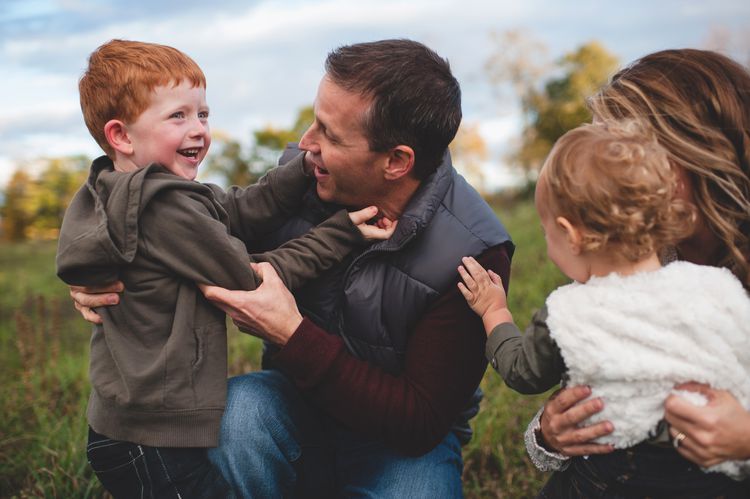 They will try to be seen as the ‘winner’ by trying to get the child to primarily reside with them, regardless of the practicalities of this, inflicting a painful blow on the other parent. The child will be seen as a way to cause suffering on the other parent, who they wish to annhilate, as a result of their narcissistic rage caused by the breakdown of their relationship. They will refuse to cooperate on anything at all, and co-parenting becomes a tiring game of counter-parenting. And all the while, the narcissistic parent will be lovebombing the child, giving false justifications for any of their actions which might otherwise arouse suspicion in the child. All this will be delivered to the child with trademark conviction and magnetic allure.
They will try to be seen as the ‘winner’ by trying to get the child to primarily reside with them, regardless of the practicalities of this, inflicting a painful blow on the other parent. The child will be seen as a way to cause suffering on the other parent, who they wish to annhilate, as a result of their narcissistic rage caused by the breakdown of their relationship. They will refuse to cooperate on anything at all, and co-parenting becomes a tiring game of counter-parenting. And all the while, the narcissistic parent will be lovebombing the child, giving false justifications for any of their actions which might otherwise arouse suspicion in the child. All this will be delivered to the child with trademark conviction and magnetic allure.
"Being the child of a narcissist is hard, but so is being the non-narcissistic parent."
As the non-narcissistic parent you have an important job to do in setting up your child for a heathy future.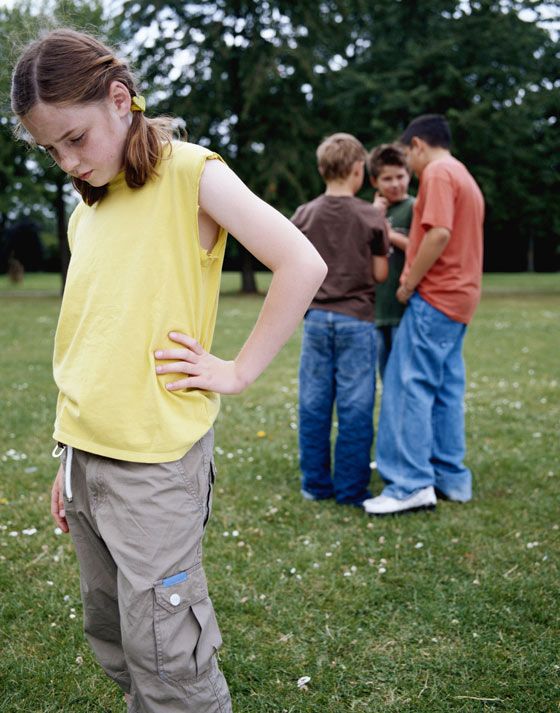 Whilst badmouthing the narcissistic parent is a no no, and will mostly likely back-fire against your relationship with your child, you have a fine line to tread. If you are badmouthed by the narcissist, you should (if the content is age appropriate) provide the truth to your child, without actually accusing the narcissist of lying. When the narcissist is late picking up or returning the children, you should stress the importance of being on time, and respectfulness, again without being openly critical of the narcissist. But mostly, you need to lead by example. Be the parent who encourages the child’d hopes and dreams. Be the parent who supports them. Be the parent who listens to them and takes them seriously. Who celebrates them as an individual. Who loves them unconditionally, but who sets firm boundaries and rules. The stability of your love, and the equality of it with your other children will be eventually be noticed as contrasting with the narcissist’s behaviour.
Whilst badmouthing the narcissistic parent is a no no, and will mostly likely back-fire against your relationship with your child, you have a fine line to tread. If you are badmouthed by the narcissist, you should (if the content is age appropriate) provide the truth to your child, without actually accusing the narcissist of lying. When the narcissist is late picking up or returning the children, you should stress the importance of being on time, and respectfulness, again without being openly critical of the narcissist. But mostly, you need to lead by example. Be the parent who encourages the child’d hopes and dreams. Be the parent who supports them. Be the parent who listens to them and takes them seriously. Who celebrates them as an individual. Who loves them unconditionally, but who sets firm boundaries and rules. The stability of your love, and the equality of it with your other children will be eventually be noticed as contrasting with the narcissist’s behaviour.
Teach them empathy from an early age by discussing other peoples’ feelings.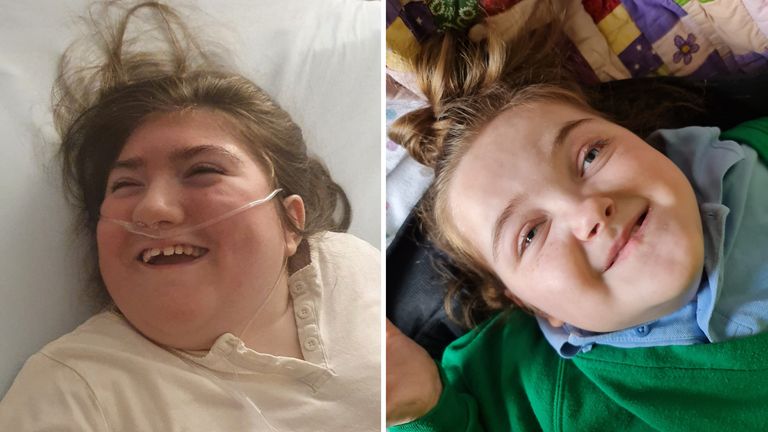 Even when reading bedtime stories you can pause to ask, ‘and how did you think the character felt then?’ If you can build empathy in your child, a skill which can be learnt, then you have effectively stopped your child from becoming a narcissist as an adult. So much narcissistic behaviour comes from the inability to care about others because they cannot feel things from another’s perspective, because they were never able to learn empathy. But, like all things, too much empathy is also a bad thing - it can lead a person to give and give to another, and set them up for being preyed on by users. Encouraging you child to learn how to recognise and express their own needs, and how to exert their own boundaries will also be important here. Again, leading by example is the way forwards.
Even when reading bedtime stories you can pause to ask, ‘and how did you think the character felt then?’ If you can build empathy in your child, a skill which can be learnt, then you have effectively stopped your child from becoming a narcissist as an adult. So much narcissistic behaviour comes from the inability to care about others because they cannot feel things from another’s perspective, because they were never able to learn empathy. But, like all things, too much empathy is also a bad thing - it can lead a person to give and give to another, and set them up for being preyed on by users. Encouraging you child to learn how to recognise and express their own needs, and how to exert their own boundaries will also be important here. Again, leading by example is the way forwards.
"Parenting, as we all know, is a tough job, but it is twice as hard when you have to counteract the damage that is being (often covertly) inflicted on the child by a narcissistic parent."
Even years post separation or divorce from the narcissistic parent, you will be battling them regarding the children, feeding their narcissism through the drama, conflict and sympathy they will use the situation to garner from others.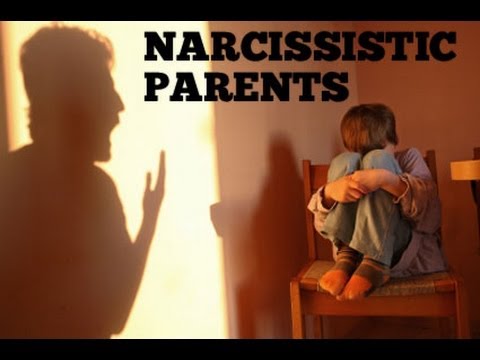 There is no such thing as co-parenting with a narcissist, and ‘Parallel Parenting’ is the best model to adopt, where you severely limit your contact with the narcissist to only the essentials regarding the children, and accept that the children live by the rules of whichever house they are staying in at the time. No school or family events are attended jointly, and you use the grey rock technique to communicate with them (see my communication tactics blog posts). Your own healing is important here too, and the closer you can get to the gold standard of ‘no contact’ with the narcissist by reducing contact to the absolute bare minimum, the faster you can heal.
There is no such thing as co-parenting with a narcissist, and ‘Parallel Parenting’ is the best model to adopt, where you severely limit your contact with the narcissist to only the essentials regarding the children, and accept that the children live by the rules of whichever house they are staying in at the time. No school or family events are attended jointly, and you use the grey rock technique to communicate with them (see my communication tactics blog posts). Your own healing is important here too, and the closer you can get to the gold standard of ‘no contact’ with the narcissist by reducing contact to the absolute bare minimum, the faster you can heal.
As regards parenting, you’ll never do it perfectly, and you’ll always beat yourself up about it. You’ll even end up unwittingly inflict some damage on your children yourself, as all parents do, by definition, but at least with awareness of what you are facing, you stand a great chance of helping your children towards a healthy future.
Understanding the Children of a Narcissist
Contact Our Therapists Today!
The children of a narcissist are often children who grow up to be codependent, people-pleasers, and have low self-esteem. They are children who never feel good enough for their parents or themselves. This blog post will explore the effects of growing up with a narcissistic parent on children into adulthood.
Table of Contents
Who are the children of a narcissist?Children of narcissists are children who grow up with parents who have narcissistic traits. They often have low self-esteem and feel they can never be good enough for themselves or their parents. The children of a narcissist may also become codependent people-pleasers as adults because that is what they learned from their parents.
Traits of children of a narcissistic personality disorder parentSome of the most common characteristics of children of a narcissist can include:
Low or fragile self-esteemChildren of narcissists typically experience having low self-esteem throughout their childhood and sometimes into their adulthood. They have low esteem because they grew up with parents who never thought they were good enough or loved them unconditionally. As they get older, they may selectively attend to instances where they feel that they failed or did not meet their expectations because of their narcissistic parents. The narcissistic parent may even tell their child that they are not crucial to the parent, which can cause long-term pain and damage for the child as an adult.
They have low esteem because they grew up with parents who never thought they were good enough or loved them unconditionally. As they get older, they may selectively attend to instances where they feel that they failed or did not meet their expectations because of their narcissistic parents. The narcissistic parent may even tell their child that they are not crucial to the parent, which can cause long-term pain and damage for the child as an adult.
Children of narcissists often end up in relationships with people who have narcissistic traits. These children feel like they can never be good enough for their partner or themselves, so they become codependent on the other person to make them happy and validate their self-worth. They might present themselves as clingy and constantly need attention.
People-pleasing behaviorChildren of a narcissist may also find themselves being overly accommodating of other people in their lives, especially romantic partners. They may feel like they can never say no to anything that the person wants them to do or be because of feelings of guilt and obligation towards others.
They may feel like they can never say no to anything that the person wants them to do or be because of feelings of guilt and obligation towards others.
Another common trait for children of a narcissist is difficulty when it comes to spending time by themselves. These children are used to being around others and always having a partner, so when they have time by themselves, it can be an uncomfortable feeling for them.
Drug addictionChildren of narcissists are often at risk for drug addiction and alcoholism because they have so much emotional pain. They may feel that the only way they can deal with this is by self-medicating and numbing their feelings, which leads them down a path towards substance abuse problems.
Relationship issuesAdult children of narcissists often have relationship problems with romantic partners. They may feel like they can never be good enough or meet the other person’s expectations, which causes a lot of stress in their relationships and resentment for both partners.
Children who grow up with narcissistic parents often become very manipulative as adults because they learn narcissistic traits from their parents. They may find themselves lying to get what they want or making empty promises for someone else to do something for them, which is a sign of low self-esteem.
Domestic violenceChildren of narcissists may also find themselves in abusive relationships as adults because they have low self-esteem and feel like the other person always has more power over them. They are often afraid to leave these relationships, leading to feelings of fear and anxiety for their safety if not being abused physically, at least emotionally, by the partner.
Codependent behaviorSometimes children of narcissists feel like they can never say no or stand up for themselves in the face of danger. This is because their parents might have made them do dangerous things when they were younger, which caused a lot of fear and anxiety. Or their parents might have never let them do anything on their own without criticism.
Or their parents might have never let them do anything on their own without criticism.
Children who grow up with narcissistic parents often have many feelings of inadequacy as an adult, leading to mental health issues like anxiety and depression. These feelings come from the lack of unconditional love that they received while growing up with a narcissistic parent who never thought anything they did was good enough or important for them in any way.
Self-harm and mutilationChildren of narcissists may also self-harm or mutilate themselves because they have so much emotional pain inside and not enough resources to deal with it properly. This can result from neglectful parents, like not being fed properly or cared for when sick and physical abuse in some cases.
Eating disordersEating disorders are another common problem for children of narcissists. These children often feel like they can never be thin enough or meet their parents’ expectations, which causes a lot of stress and leads to them obsessing over food to cope with these feelings. It is a way to establish some control since they usually do not feel control over their lives.
It is a way to establish some control since they usually do not feel control over their lives.
Another common trait for children of narcissistic parents is an addiction to perfectionism. These kids are used only to feel good about themselves if they do everything perfectly and meet their parent’s expectations, which causes a lot of anxiety in their lives because that can never happen due to the unrealistic demands put on them as a child.
Anxious/insecure attachmentChildren of narcissists often have an insecure attachment to their parents, leading to mental health issues like anxiety and depression. They feel a lot of fear in most relationships because they learned from watching their parents how not to do things, which makes them afraid of being out of control or losing themselves. They may have a hard time in other relationships because of their relationship with their parents.
Chronic self-blameBecause children of narcissists learned at a young age that they were never good enough for their parents, even if it was something as small as not making the bed correctly or failing to complete homework on time, these kids often have chronic self-blame going into adulthood.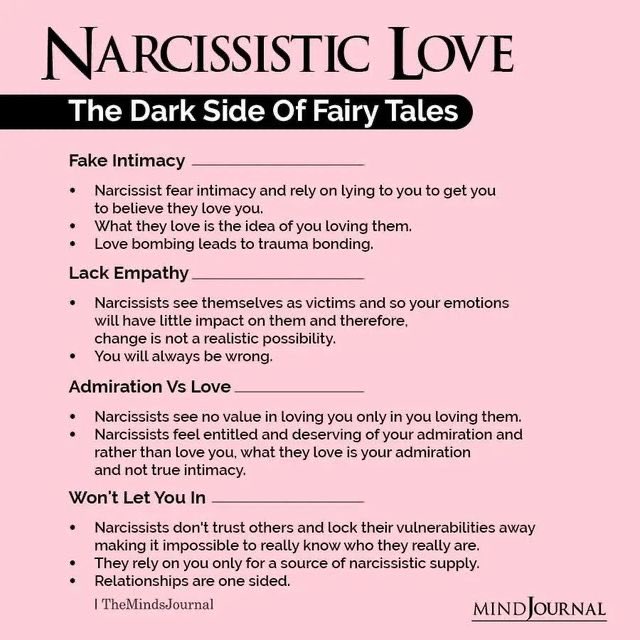 This is because they are always thinking about what could have been done better.
This is because they are always thinking about what could have been done better.
Children of narcissists often develop fears. They may fear that they are not loved or cared about by anyone. They may feel anxious about messing up or how future events will play out. They may also fear being abandoned and left all alone, which can lead to anxiety and depressive disorders because children who grow up with narcissistic parents never feel like anything is good enough for them in any way.
The effects of growing up with a narcissistic parent can last well into adulthood as children grow older when they do not receive enough support or validation from their parents.
These traits are often found in the children of a narcissist because it is what their narcissistic parent taught them. Children who grow up around toxic behaviors tend to learn them themselves (which leads back to living vicariously through the child), making these behaviors hard to break without support and help from family members or professionals.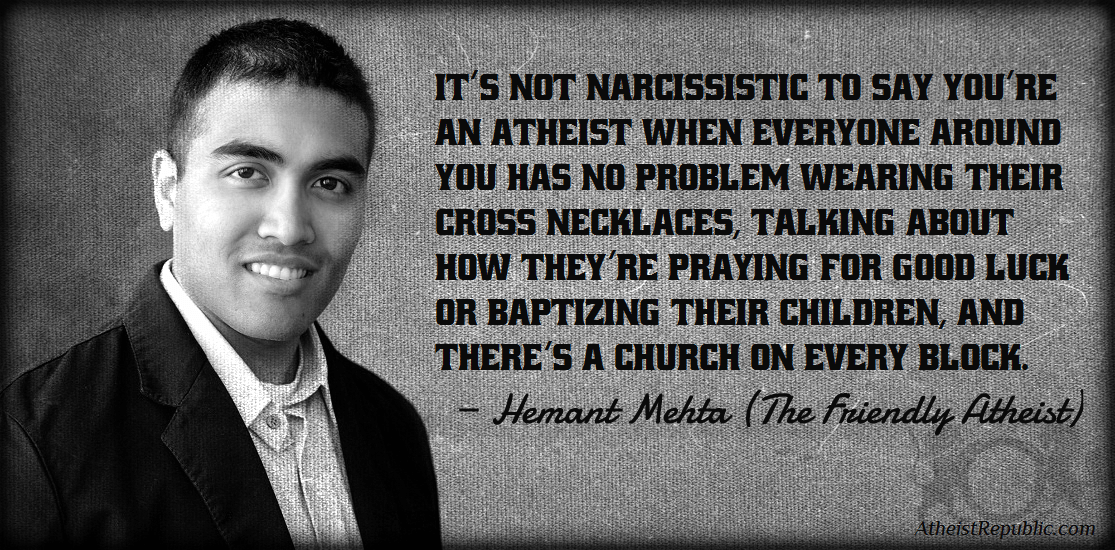
If you are being raised by a parent or parents who has/have narcissistic traits, there may be signs that there is something wrong. A few of the most common behaviors you can look for that narcissistic parent’s display are:
- Excessive boasting about themselves and their accomplishments
- Inflated sense of self-importance
- Hypersensitive to criticism (even when it isn’t constructive)
- Belittling others in front of friends or family members
- Not seeing your point-of-view as valid even though everyone else does
- Needing constant attention from other people, especially children
- Inability to show empathy towards others, including children’s needs
- Wanting everything to revolve around them instead of focusing on the balance between work life and home life
- Being unable to discuss issues constructively (takes things personally)
- Expecting things from children that they never would do for themselves, such as working, cooking dinner, etc.
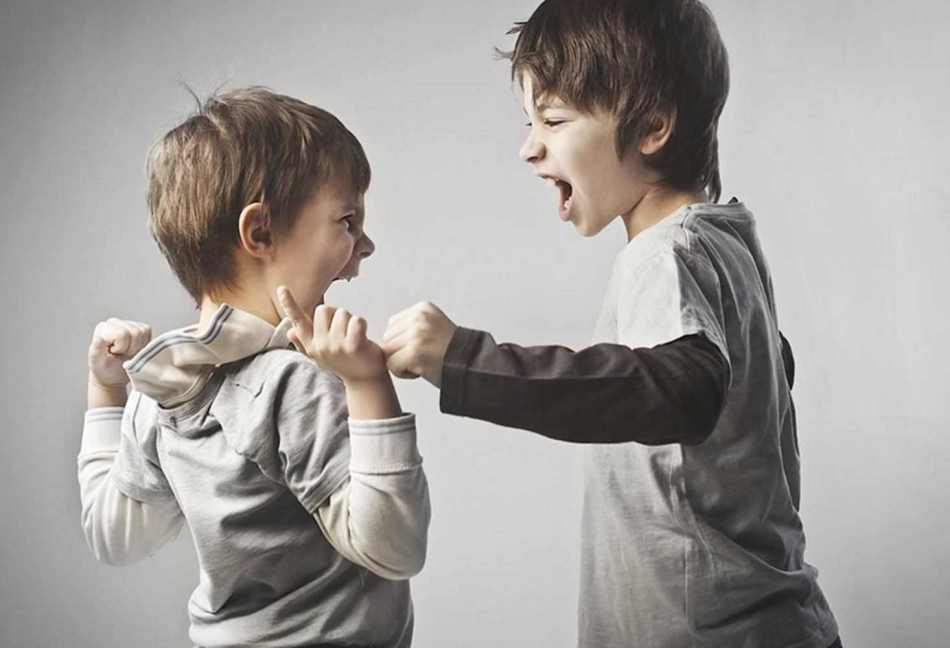
- Believing there is only one way to accomplish something, and if it doesn’t happen their way, the work needs more effort or is not good enough.
- Inflexibility when trying to communicate with them
A Self-absorbed parent tends to be inflexible and has zero tolerance for any behavior that is not what they would do in a situation. They expect their children to be compliant and submissive. A self-absorbed parent has no issue with using children as an accessory to show off or for personal gain, even if it means sacrificing their child’s emotional well-being.
Narcissistic parents’ fear of abandonment will show through their behavior that they expect children to give them attention and praise. They constantly need validation from outside sources, especially if it’s coming from someone younger than them or dependent on them.
Many parents are unaware of how much of an effect narcissistic parenting can have on children until they become teenagers and develop their own opinions. At that point, it becomes more difficult for a narcissist to control the child because they are starting to get ideas of their own that may not agree with what the parent thinks.
At that point, it becomes more difficult for a narcissist to control the child because they are starting to get ideas of their own that may not agree with what the parent thinks.
Narcissistic abuse is a form of emotional and psychological abuse that is often misunderstood. Many people believe that narcissism only affects adults, but narcissistic behaviors can be seen in children. It’s not until later on when these kids are older, they realize what was going on behind their backs. It becomes more apparent to them because they compare their own lives with others who have more loving parents.
Children must be taught the difference between right and wrong to preserve their self-esteem as they grow older, so they do not end up like their parents.
How to deal with a narcissistic parentIf you are a child of narcissistic parents, there are ways to deal with them. A few helpful tips that may help include:
- Educate yourself on what narcissism is and how it can affect children, especially if raised by one or both parents who have/have these traits
- Stay away from conversations about people in your family unless they bring up the topic first, so you do not end up defending yourself.
- Be open-minded when communicating with the narcissistic parent because trying to get through will only make things worse for you in the long run.
- Reach out for support from other people such as friends, clergy members, counselors, etc. This way, you won’t be alone during this challenging time (if you feel the need to discuss it with them)
When a child of narcissistic parents becomes an adult, they may struggle with some or all of the traits passed on to them by their narcissistic parent. This makes it hard for the adult children who have been raised this way to become adults themselves without guidance and support from family members and professionals.
As adults, our efforts must be heard when we finally reach out because no one should be living like that, especially if other people in your life are willing to help you through these challenging times. If counseling isn’t necessary, then going back home can also help, but only if the environment has changed (which means giving up control over everything, including what everyone does. ).
).
If you are a child of a narcissistic parent, there is no way to sugarcoat it. It can be hard at times, but with the proper support and help, things can get more accessible for you as long as they understand that their behaviors (no matter how well-meaning they may seem) affect those around them in negative ways.
If you are still struggling, reach out to family members who understand it since they have been through the same thing or professionals such as counselors and clergy. They can help guide you on the right path towards recovery to move forward from the experienced pain.
How narcissistic parents affect children’s developmentWhen narcissistic parents raise a child, they are affected in many ways, such as:
Under-developed social skills – because the narcissistic parents tend to do everything for them instead of learning how to handle things independently from an early age. This can lead to problems with friendships and relationships once they become adults themselves or stay at home when moving out (until marriage. )
)
Low self-esteem – due to being told that what they did was not good enough, which can affect them while trying new things throughout life, including school, working towards bigger goals like getting married or starting a family, etc.
Inability to think independently without influence from someone else because the narcissistic parents expect children who look up to them to take their opinions seriously and without question, which can conflict with what other people say.
These are just a few of the many things that children who have narcissistic parents have been raised to experience because they lack guidance from someone else (like another family member or professional) on how to handle these situations.
Children of narcissistic mothersChildren of narcissistic mothers can experience a lot as they grow up. If you are one, it is imperative to be aware that your mother may be a narcissist, and while that may seem insulting to you, you need to know this to develop yourself as an adult.
This is because someone a narcissist has raised may struggle with self-esteem, unhealthy relationships, and other issues later on in life. If this sounds like you or if it does not, but you think something else could be going on, such as depression, then reach out to an adult child of narcissistic mothers support group (or others) for guidance, suggestions, and help.
Children of narcissistic fathersChildren of narcissistic fathers are affected in many ways, so they need to know that their father may be a narcissist and understand what this means.
This can help you develop your own personal identity, find healthy relationships, have good self-esteem (or work on developing one), etc. if any of this sounds like you, reach out to an adult child of a narcissistic fathers’ support group (or others) for guidance and help.
Children of malignant narcissistsIn many cases, malignant narcissists have traits such as being anti-social or having sociopathic tendencies, which can make them dangerous to others, especially if they are put into positions where their influence will affect other people, like in politics or law enforcement.
This type of personality can lead to violence within families (especially towards children) who do not necessarily go along with what these individuals want from them, so this should be taken seriously no matter how well-meaning the narcissistic parents may be to others.
The best way for children of these individuals is to get away from them and seek support from friends, family members (preferably those who the same people did not raise), or professionals such as clergy or counselors where they can talk about how their lives have been affected because of this.
Children of covert narcissistsA covert narcissist has many of the same traits as a malignant narcissist, except their behavior tends to be less aggressive and more indirect, which can make having conversations with them difficult if you are not used to dealing with these kinds of people.
If you have been affected by this, it may be helpful for you to communicate your thoughts in writing so they cannot twist what was said around you or find loopholes that allow them to get away without taking responsibility for anything. This way, any misunderstandings will be prevented from getting out of hand, potentially hurting how others see them (and possibly lowering their social standing).
This way, any misunderstandings will be prevented from getting out of hand, potentially hurting how others see them (and possibly lowering their social standing).
If you have adopted children of narcissistic parents, this is a good time to reflect on what has happened and why it was important for them to be placed with you.
The reasons may vary depending on the child, but in many cases (especially if they are older), their parents did not want them anymore, which means there should be no guilt on your part for doing what was best for them.
However, if you think something else is going on, like a narcissistic parent trying to spitefully hurt their other child by giving away the “scraps” (which has happened), it may be important to have conversations with both of these people separately to find out more about why they are acting this way because in some cases, it can feel like they have taken advantage of you and your family.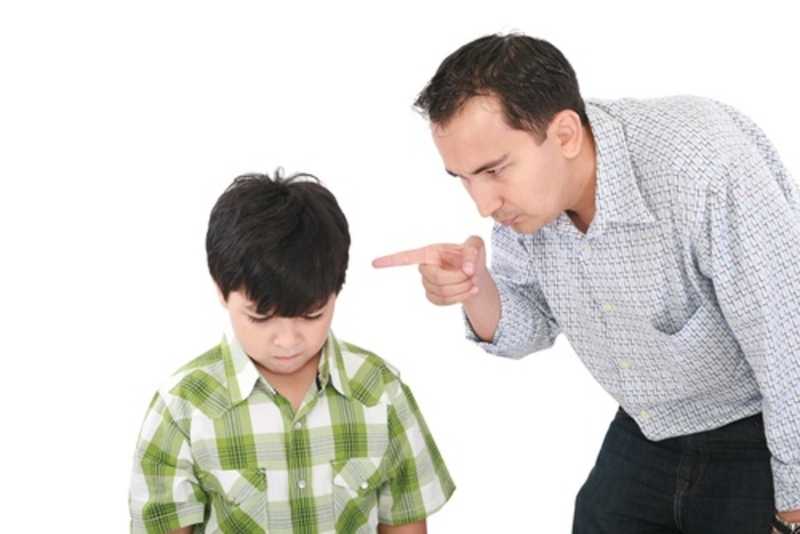
If the child was placed with you due to being neglected, abused, or abandoned by their original parents, then trying to get them back is not advisable unless they are in danger of being put back into the same (or similar) situation.
This is a good time to set boundaries with them and clarify that this was only supposed to be for a short period, so if you feel like these children have become too attached. Keep in mind that their parents may not change soon, which means it is better to let them go and find other ways of coping with the situation.
What you should never do as a parent who has adopted children of narcissistic parentsAs someone who takes in children (especially if they are older) that have experienced what it is like living under malignant or covert narcissist, there are several things you should never do, which include:
- Allow them to disrespect you or your other family members, even if they act out from their past experiences.
 This can make matters worse later on and lead to a new set of problems when they grow up and continue the same behavior with others because it is how they have learned (and gotten away) with treating others as they have been treated.
This can make matters worse later on and lead to a new set of problems when they grow up and continue the same behavior with others because it is how they have learned (and gotten away) with treating others as they have been treated. - Allow them to try and be manipulative to get what they want, which means if you think something is going on, stay aware of the signs that could indicate this person has a fixation with power (and/or control) because it will not only prevent these children from learning how to respect others, but it could also keep them from having successful relationships in the future.
- Allow them to take advantage of you financially or otherwise (e.g., lying for their benefit). This is an excellent time to set boundaries and make sure they understand that what happens while they are living with your family stays with your family unless there is imminent danger of any sort.
- Give up on them, even when it seems like you are the only one willing to do what is best for them (even if they don’t see it this way).
 These children need more love and support than others which means keeping an open mind about their ideas and opinions no matter how much a challenge.
These children need more love and support than others which means keeping an open mind about their ideas and opinions no matter how much a challenge.
If you have been through a traumatic event with narcissistic parents, it is vital to be aware that recovery can take up much of your time and energy. It will not happen overnight because this kind of trauma has the potential to do severe psychological damage over an extended period. Depending on what type of relationship you had with your parent
If you are the child of a narcissistic parent, it is crucial to know where this behavior came from (e.g., growing up with abusive or neglectful parents).
This can be a difficult and painful process, but there are many ways that you can begin to heal by doing things like:
Talking about your feelings – It may sound silly, but opening up to someone you trust can be a good way of dealing with your feelings, including anger, sadness, and resentment.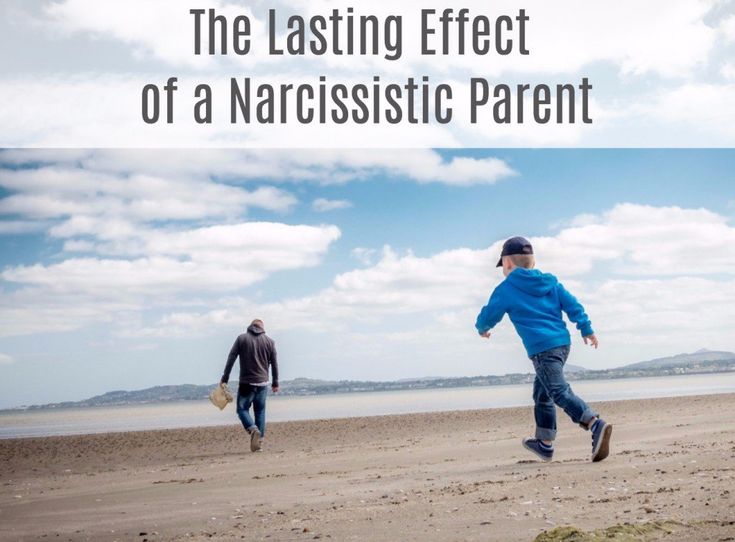
Finding support – Having people in your life who understand what you are going through is important because there is less chance of feeling alone (which could lead to more pain).
Getting therapy can be complicated if you do not have insurance or the money to pay for it, but this is when you must reach out and find someone who can help you with your feelings.
Finding ways of coping – Whether it’s going for walks, journaling about how you feel, reading books related to self-help/healing, etc., it is essential to find ways of coping with your feelings which can lead to recovery.
Taking care of yourself – You may have been neglected or abused in the past, but that does not mean you are doomed for a future filled with bad habits and patterns! This means taking the time each day (or week) to treat yourself like anyone else you care about and ensuring that your needs are being met.
Healing from having narcissistic parents is a long path, but it is possible to get past the struggles.
Adult children of a narcissistic parent can learn a lot from reading books on how to deal with these issues as well as watching videos online that provide helpful tips for coping, such as looking at the positives in situations instead of focusing only on the negatives, which is something adults who narcissists have raised tend to do.
You can do many things to help yourself heal, but the most important thing is finding someone who understands what you have gone through and will not judge your past choices. If you are looking for a trauma therapist, or child therapy in Philadelphia, PA, contact us today. The sooner you heal from trauma, the better your life will become!
Contact us for therapy in Philadelphia.
We now offer online therapy to anyone living in the Pennsylvania area!
CategoriesSelect CategoryAnxietyAttachmentBetter You TipsChild & Teen TherapyCommunicationCouples TherapyDepressionFamily TherapyGriefIndividual TherapyLGBTQ TherapySelf EsteemSex and Sexuality TipsTraumaUncategorized
Contact Us!
Please enable JavaScript in your browser to complete this form.
Name *
Email *
Phone *
Preferred TherapistNo PreferenceBrianna IntiliCaleb DunnCaitlin SiekerkaClaire SavageCourtney MillerKatrina VelasquezMadequor Tetteh-OclooWillena "Lena" HayesNitasha StraitSabree WrightSpencer Bell
Location of Service *Please SelectIn OfficeIn HomeVirtual Therapy
How did you hear about us?Select OneSearch Engine (Google, Bing, Etc.)Recommended by a Friend or ColleagueAnother Provider (physician, therapist, etc)Social Media (Facebook, Instagram, Etc.)Reddit or QuoraDirectories (Yelp, Etc.)Blog or PublicationOther
Can we leave a voicemail or text message on the telephone number provided?Select OneYesNo
Message *
Captcha *
=
Comment
Call Us!
Skip to content
What injuries do narcissistic parents inflict on us? In communication, they give the impression of charming and gifted personalities. Their self-control is better developed than those suffering from borderline personality disorder or regressive features.
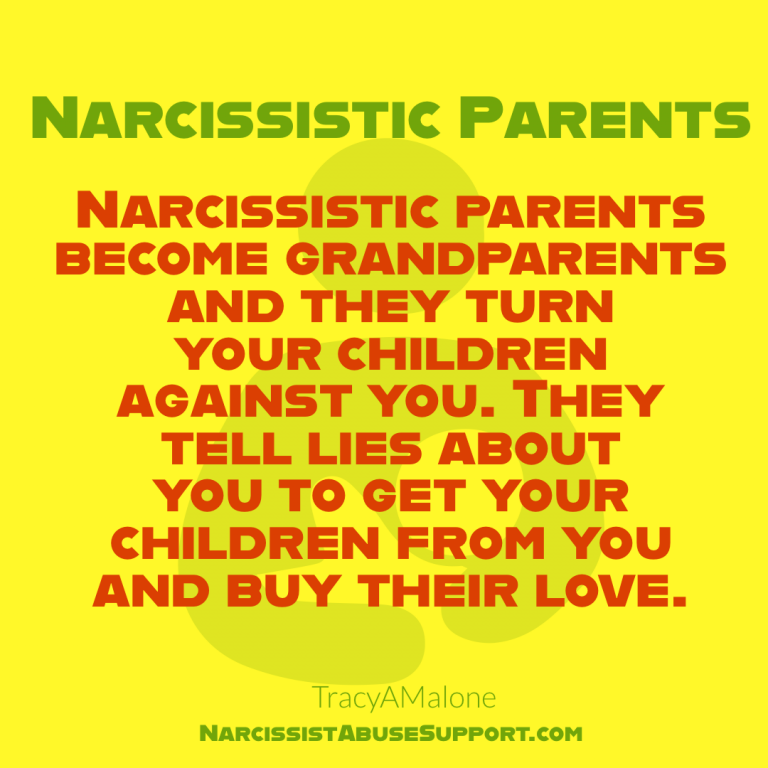
In the clinic, I often work with such people or patients raised by narcissistic parents. They have some noticeable features:
-
When communicating with others, they often mention themselves or talk about themselves.
-
They have an increased need for love and admiration.
-
They need to be constantly reminded how special they are.
The narcissist is torn apart by internal contradictions between a sense of his own importance and value and the opposite sense of his own insignificance, which he tries to fight, getting the attention and admiration of others. Because of this, communication is difficult and discouraging. At first you feel that they are in dire need of special attention and care, and soon they no longer need it, and criticism will be the answer to attention.
Abrupt changes within the same conversation, as well as other personal characteristics of narcissists, create such problems in communicating with them.
If you had such parents, you probably had problems with spontaneity, creativity and play. Imagination and spontaneity were stifled by constant tension - you couldn't afford to relax even for a second. They did not understand what was happening, due to the unpredictable and contradictory behavior of the parents. In severe cases, you may have experienced psychological trauma.
One of my patients said: “I was afraid to go home. When my father was at home, it was very difficult. His mood could change unpredictably in the blink of an eye. One day I come home, and he just brought everyone a few pieces of cake. I was very happy and told him about it. But before I finished the first bite, his mood changed dramatically. He decided that I didn't really like the cake and would have preferred something else.
He said that he noticed something in my facial expression that he did not like, and began to literally interrogate me, and eventually accused me of ingratitude. Everything could end very unpleasantly.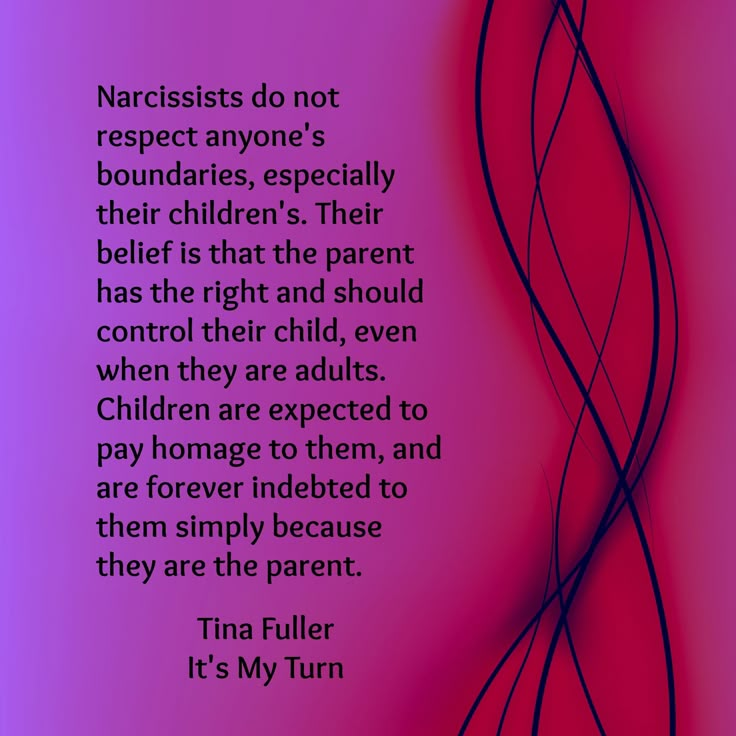 I lost heart, realizing that I could not change anything. I still had a piece of cake in my mouth, and he began to get angry and accuse me of ingratitude.
I lost heart, realizing that I could not change anything. I still had a piece of cake in my mouth, and he began to get angry and accuse me of ingratitude.
I burst into tears before finishing my meal, and as a result, I got my face dirty, which pissed him off even more. All this was terrible, but quite typical and expected. When the father was very angry, he could turn to physical violence. Coming back from school, I thought with horror what would happen this time if he was at home.
Unpredictability in parental behavior can be psychologically traumatic for a child, especially when it comes to physical assault
If you grew up in such conditions, it will most likely be very difficult for you to reveal your creative potential and your talents.
Other long-term effects are possible. Children of parents with this trait often find partners with similar personality problems. As children, they learned that their role is to soothe and comfort the narcissist, and so they look for such a partner.
Everything repeats as they unwittingly return to unhealthy situations from childhood. I've met adults who have had several relationships or even marriages in which the same narcissistic pattern was repeated. Psychotherapy can help you break out of this vicious circle, rethink problems and experiences that are sucking you back into the familiar relationship pattern. Therapy will show the way, but it will take a lot of time and work to go through it.
About the author: Toby Ingham - psychoanalyst
Text: Nikolay Protsenko Photo credit: Shutterstock
New on the site
“I am too cold and arrogant. How to love people?
“A man is in correspondence with another woman. How to talk to him about it?
Why people don’t want to start a family: a new study by scientists
“I can’t sleep”: 5 ways to lull a restless brain — try it for yourself
Blat, sexism and bosses in shorts: Russians shared wild interview stories
3 ways to impress a potential partner
Sexual, gender, contraceptive: 3 revolutions of the feminist movement
"Why doesn't my mother love me?"
4 phrases of narcissistic parents that cripple us
Won another medal in swimming or a music competition that my mother once dreamed of, but for some reason the parents are still unhappy. And so all my life. “Not bad, of course, but my colleague’s son has already married, graduated from two higher education institutions and works as a director.” Familiar? Sounds like you grew up with a narcissistic parent. About how to identify a narcissist and not fall into his trap - psychologist Elena Savchuk.
And so all my life. “Not bad, of course, but my colleague’s son has already married, graduated from two higher education institutions and works as a director.” Familiar? Sounds like you grew up with a narcissistic parent. About how to identify a narcissist and not fall into his trap - psychologist Elena Savchuk.
People with narcissism use a variety of manipulations to achieve their goals. In this case, the children of narcissists become hostages. From the outside, such parents often seem selfless and devoted to the child. But they absolutely do not know how to sympathize, empathize, but they perfectly exploit and suppress those around them.
1. “This is not a reason to be proud, if only you won the World Cup…”
Life with narcissists resembles a closed triad of relationships: idealization - devaluation - rejection. And further in a circle.
The child is placed on a pedestal and showered with gifts and praise. At the same time, they make it clear that a lot is expected of him. He is special, which means he will definitely not disappoint his parents and will do what they want. The needs of the child himself, as well as his abilities, are not taken into account. If, for example, parents see a swimming champion in their child, then it does not matter to them that he is a talented flutist. At this moment, the child understands that the way he is, his parents do not like him. And he begins to build an ideal image that will be worthy of parental love.
He is special, which means he will definitely not disappoint his parents and will do what they want. The needs of the child himself, as well as his abilities, are not taken into account. If, for example, parents see a swimming champion in their child, then it does not matter to them that he is a talented flutist. At this moment, the child understands that the way he is, his parents do not like him. And he begins to build an ideal image that will be worthy of parental love.
If the achievements of the child of the parents are not impressive, then they immediately throw him off the pedestal, begin to criticize, compare with others, ignore and make it clear that he greatly disappointed them. The child develops a sense of guilt and a desire to grow up to high parental standards by all means.
Sometimes directly, and sometimes behind the scenes, the child is promised to return his disposition and love if he lives up to expectations. Parental love of a narcissist must be earned9% are due to his efforts and attention.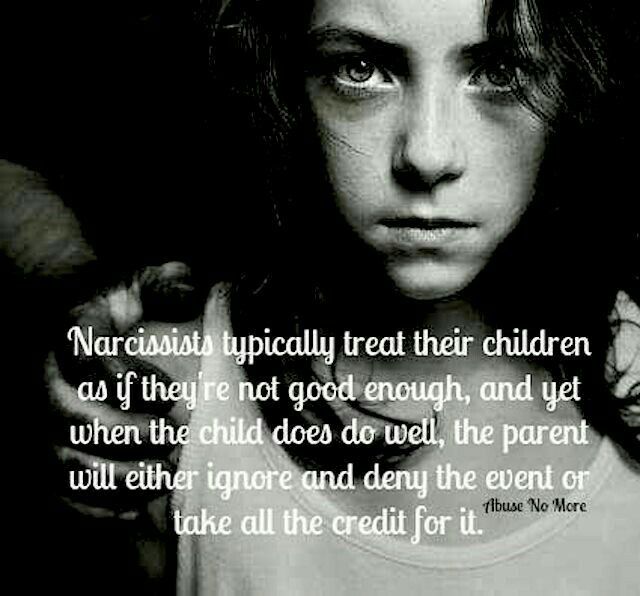 So the narcissist can also get the admiration of society. Or sympathy if the child did not achieve much success. If the goals set by the parents are achieved, it will still not work to relax and enjoy success. A new goal is set before the child, and the achievement is devalued: “This is nonsense and not a reason for pride, now if you did this and this ...”.
So the narcissist can also get the admiration of society. Or sympathy if the child did not achieve much success. If the goals set by the parents are achieved, it will still not work to relax and enjoy success. A new goal is set before the child, and the achievement is devalued: “This is nonsense and not a reason for pride, now if you did this and this ...”.
2. “What are you thinking! There was no such thing”
This is called gaslighting - a form of emotional abuse, when the manipulator inspires his victim that her perception of the situation is inaccurate, incorrect. A person should have doubts about the reality of what is happening, so that he literally feels "crazy".
The narcissist often criticizes and makes fun of his child's feelings, blaming him for what is happening. Usually, he uses the phrases: “You provoked me”, “You exaggerate everything”, “I never said this”, “That didn’t happen”, and so on. As a result, the child begins to doubt himself and his perception of the situation.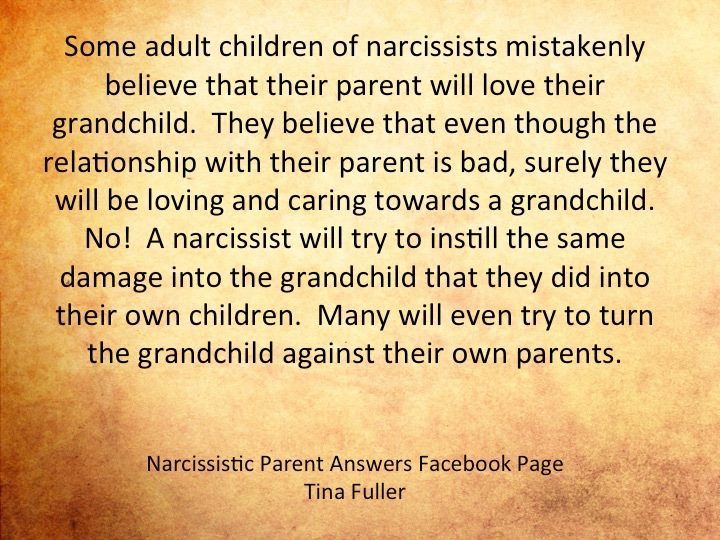 When a child grows up, he does not realize for a long time how toxic this relationship was. He cannot adequately assess the new relationship because he does not trust his instincts and ability to correctly interpret events.
When a child grows up, he does not realize for a long time how toxic this relationship was. He cannot adequately assess the new relationship because he does not trust his instincts and ability to correctly interpret events.
Another method of "black PR", which is already used with an adult who wants to change relations with a narcissist, get out of his influence. The scheme will be similar, regardless of whether we are talking about a child, a spouse, or just about a once close person. This technique has three goals:
- To portray the victim as an inadequate person who engages in emotional abuse, and to mirror her own idea of a relationship with a narcissist.
- Provoke retaliatory steps and prove that the other person is out of his mind.
- Pull him back into a traumatic relationship while he tries to justify himself and prove to everyone that he is a normal person.
This is usually easy, given that narcissists are surrounded by a crowd of enchanted people and other narcissists.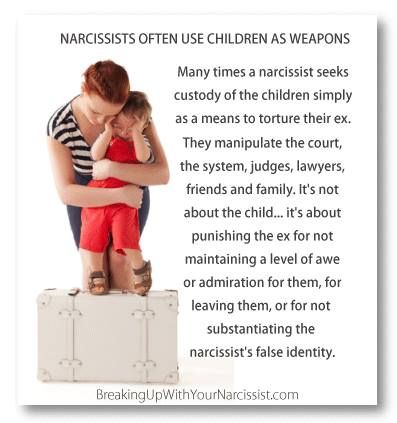
3. “Think of grandma! She can't take it.”
A healthy parent-child relationship gives the child a sense of stability and security. The unhealthy are full of provocations. Narcissists love to create triangles and often share the opinion of a third party in order to validate their point of view and maintain control.
In a relationship with a child, there is always the shadow of a third person. For example, a deceased relative, because it is easier to idealize him, a neighbor's child, a TV star or a casual acquaintance. This is not necessarily some real person and not necessarily his real opinion, but manipulation should show that the child is behaving inappropriately, make him doubt himself and his feelings (“my friend is shocked by your behavior”, “people don’t they will understand if they find out what you are offended by", "great-grandmother would not give you a hand after this").
The narcissist relies on jealousy as a powerful tool to force the child to obey.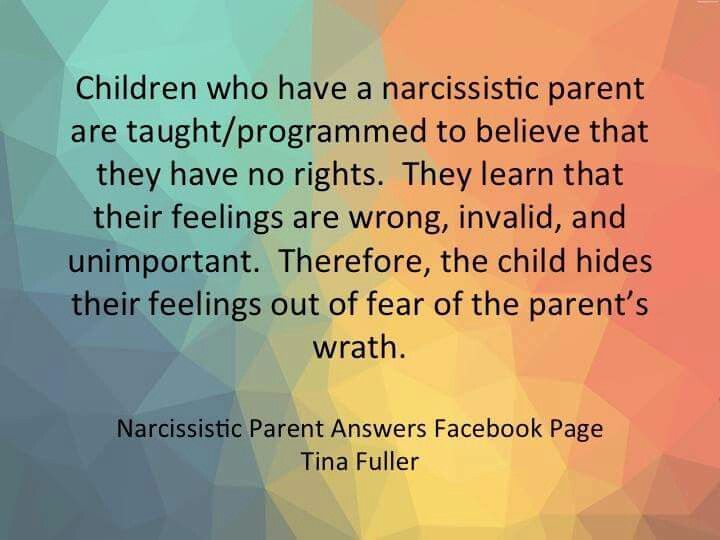 Therefore, comparisons should draw the child into competition and feel the instability of their position in the life of a narcissistic parent.
Therefore, comparisons should draw the child into competition and feel the instability of their position in the life of a narcissistic parent.
4. "You could do better"
Narcissus hides behind the mask, the façade of the Potemkin village - a construction consisting of qualities and features that should arouse admiration. Due to the fact that the mask is very well made, it is difficult to understand where he is real, cute and charismatic or overwhelming and devaluing. The child suffers from cognitive dissonance, blames himself for being treated so cruelly by the closest person and tries to "become better", to catch up to his standards, while doing nothing wrong.
The narcissist does not actually sympathize with others. You can break to death trying to get through to him
Attempts to accomplish a feat for the sake of his love certainly flatter him, because they implicitly talk about his grandiosity. But in fact, a child is just another source of nutrition.
How not to become a hostage of a narcissistic parent?
Little children are defenseless against their parents. Teenagers and adults alike can try to make a difference. The bad news is that this is very difficult to do.
Ideal if you live together and have grown up so that you can move apart. If this is not yet possible, it is important to be aware of what is happening. Don't buy into what he/she says about themselves or about you. Don't fall for depreciation or gaslighting. If they put you on a pedestal and begin to praise you, don't lose your head either. Remember that this is a part of the game that you should not even start playing. Do not argue, do not try to convince. Agree and ignore everything that is said to you. Do not set goals for yourself to win or improve relationships, this is basically impossible. The goal is to make this communication less traumatic for yourself. Do not forget to periodically test the reality, other people will be able to tell if the narcissist is right in some matters.